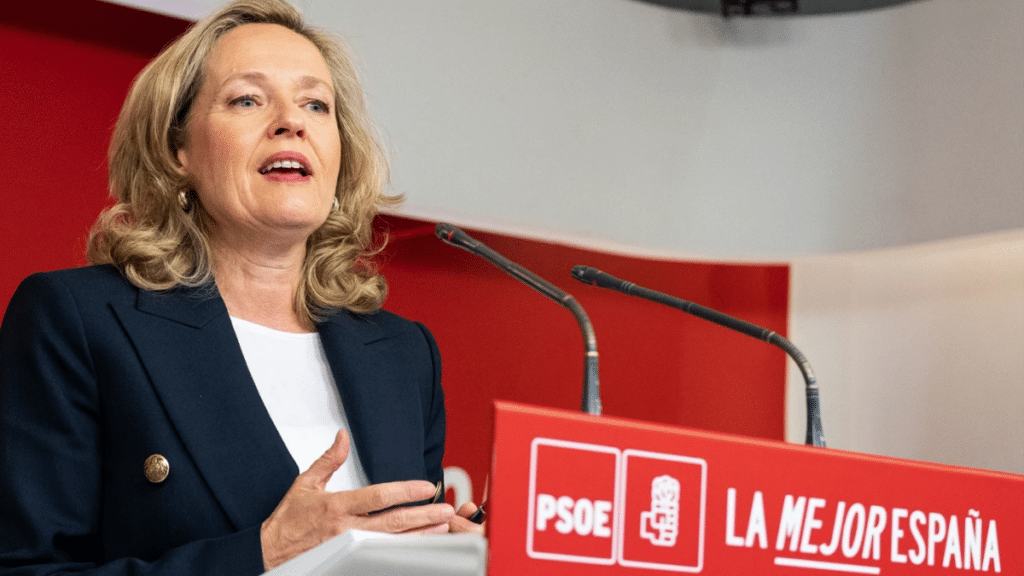The Government will extend the anti-crisis decree, which includes a VAT reduction on basic foodstuffs and public transport subsidies, according to the Vice-President and Minister of Economic Affairs, Nadia Calviño. In an interview on RNE, Calviño stressed that the VAT reduction on basic foodstuffs and support for public transport will be maintained due to the fact that food prices remain high.
Once approved by the Council of Ministers, the royal decree law will have to be validated by the Permanent Deputation of Congress due to the early elections and the dissolution of the Cortes.
Calviño also indicated that the aid measures will focus on more specific approaches, which will entail the elimination of general fuel subsidies by the end of 2022.
The vice-president ruled out extending the VAT rebate to meat and fish, arguing that it is appropriate to maintain the current measures and pointing out that fish prices have fallen.
In summary, the elimination of VAT on basic foodstuffs such as bread, milk, fruit, vegetables and pulses, among others, will be maintained, and VAT on oils and pasta will be reduced from 10 % to 5 %.
In addition, Renfe’s free Renfe season tickets will be maintained for commuter, rolling stock and medium-distance trains, along with the 30% discount on urban and inter-urban public transport for regional and municipal governments that supplement up to 50%.
Mortgage measures
The First Vice-President and Minister of Economic Affairs, Nadia Calviño, has expressed her opinion on the proposal for a mortgage bond presented by the Second Vice-President, Yolanda Díaz, leader of Sumar. Calviño has pointed out that she does not consider it appropriate to allocate public money to subsidise banks, arguing that this is what the PP political party did in the past. Instead, she argues that measures to support citizens should be financed by the banks themselves.
Calviño has announced that she will meet with banking associations this week to evaluate the codes of good practice and address various issues and complaints from users, with the aim of making further progress on this issue.
In relation to the mortgage relief measures, Calviño stated that they still have room for development, as mortgages will continue to be revised upwards. However, she stressed that the fact that the number of citizens taking advantage of the code is not very high may be due to the good situation of employment and the economy.
In short, the government is seeking to ensure that the code covers all those who need it and wants to know whether applications are being rejected or whether it is the citizens themselves who do not apply because they do not need them or consider them harmful.
